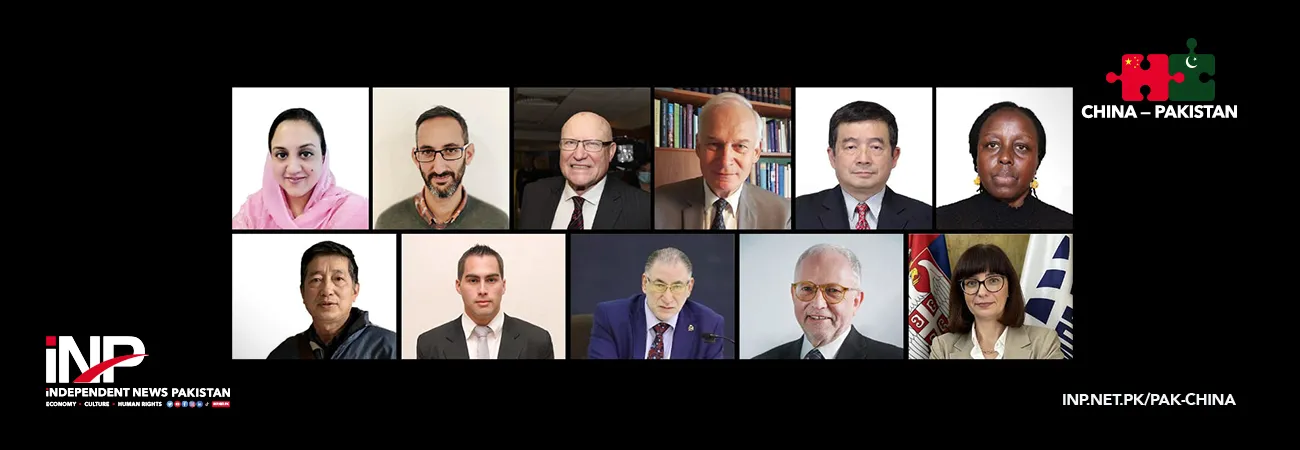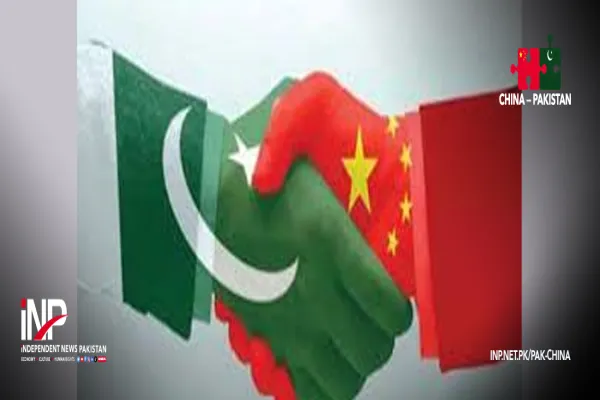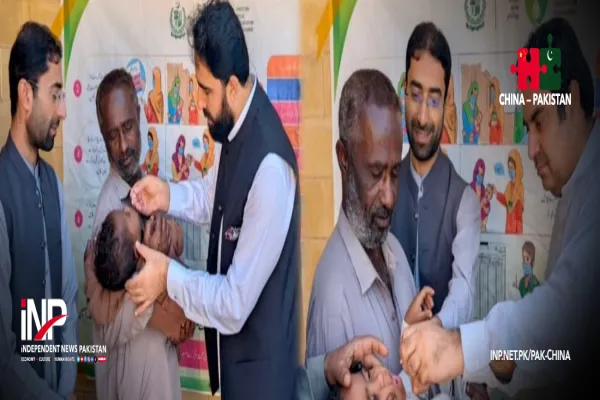i NEWS PAK-CHINA
Against ongoing global chaos, conflicts, and Middle East turmoil that disrupt peace and stability worldwide, the Belt and Road Initiative (BRI) is a powerful force for hope and unity. The recent Webinar on the Third Belt and Road Forum, themed "Together for Common Development and Shared Prosperity," saw distinguished speakers worldwide passionately emphasize the BRI's transformative potential. They pointed out that amidst the tumultuous landscape of wars and instability, the BRI not only offers a solution to ongoing conflicts but also paves the way for a future marked by universal peace and shared prosperity. Hosted by Friends of BRI Forum and the Centre for BRI and China Studies at the Institute of Peace and Diplomatic Studies (IPDS), the event brought together prominent voices from diverse regions.
Dr. Farhat Asif, President of IPDS, opened the proceedings, underscoring the global impact of BRI, with Pakistan serving as a key beneficiary through the China-Pakistan Economic Corridor (CPEC). Dr. Wang Li, Senior Professor at China's School of Law, highlighted the BRI's commitment to prosperity and the common good as intrinsic values. Ulf Sandmark, Chairman of BRI Sweden, emphasized the BRI's role not only in economic development but also in promoting global unity by resolving conflicts, such as the situation in Gaza. Ambassador Igor V. Khalevinskiy, Chairman of the Association of Russian Diplomats, Russia, commended the BRI for its remarkable global impact by facilitating development and prosperity.
Prof. Zhou Rong, Senior Fellow at the Chongyang Institute for Financial Study of Renmin University, China, stressed the importance of collaborative projects like the BRI in a world marred by conflicts, where China is making significant progress and changing lives. Dr. Kurt Grötsch, Founding President of Catedra China and Ambassador of Minzu University, Spain, highlighted the need to focus on the environmental and green impacts of the BRI as it continues to progress. Dr. Katarina Zakic, Head of the Regional Center for Belt and Road Studies, IIPE, Serbia, discussed the positive effects of the BRI on Serbia-China political relations, trade, and Chinese investments in various sectors. Carlos Martinez, Co-Editor of the Friends of Socialist China Platform, UK, emphasized the BRI's role in achieving and promoting sustainable development, emphasizing its unique and impactful nature compared to initiatives by other countries.
Dr. Hasan Abdullah Al-Dajah, Head of the Department of Media & Strategic Studies at Al-Hussein Bin Talal University, Jordan, shared insights into the ongoing progress and development catalyzed by the BRI worldwide. Martín Rafael López, a researcher at the Center of Chinese Studies at the National University of La Plata, Argentina, delved into the strong ties between Argentina and China and how BRI and economic cooperation are helping both the country and the region grow.
Terry M. Kiragu, Co-Founder of the Women, Youth & Children Development Organization, Kenya, emphasized the significant role of the NGO sector in making transformational impacts and facilitating development. The webinar was attended by a large number of participants from different parts of the world. The webinar provided a platform for thought leaders to explore the potential of the BRI in shaping a more peaceful and prosperous future for all.
Credit: Independent News Pakistan (INP) — Pak-China









